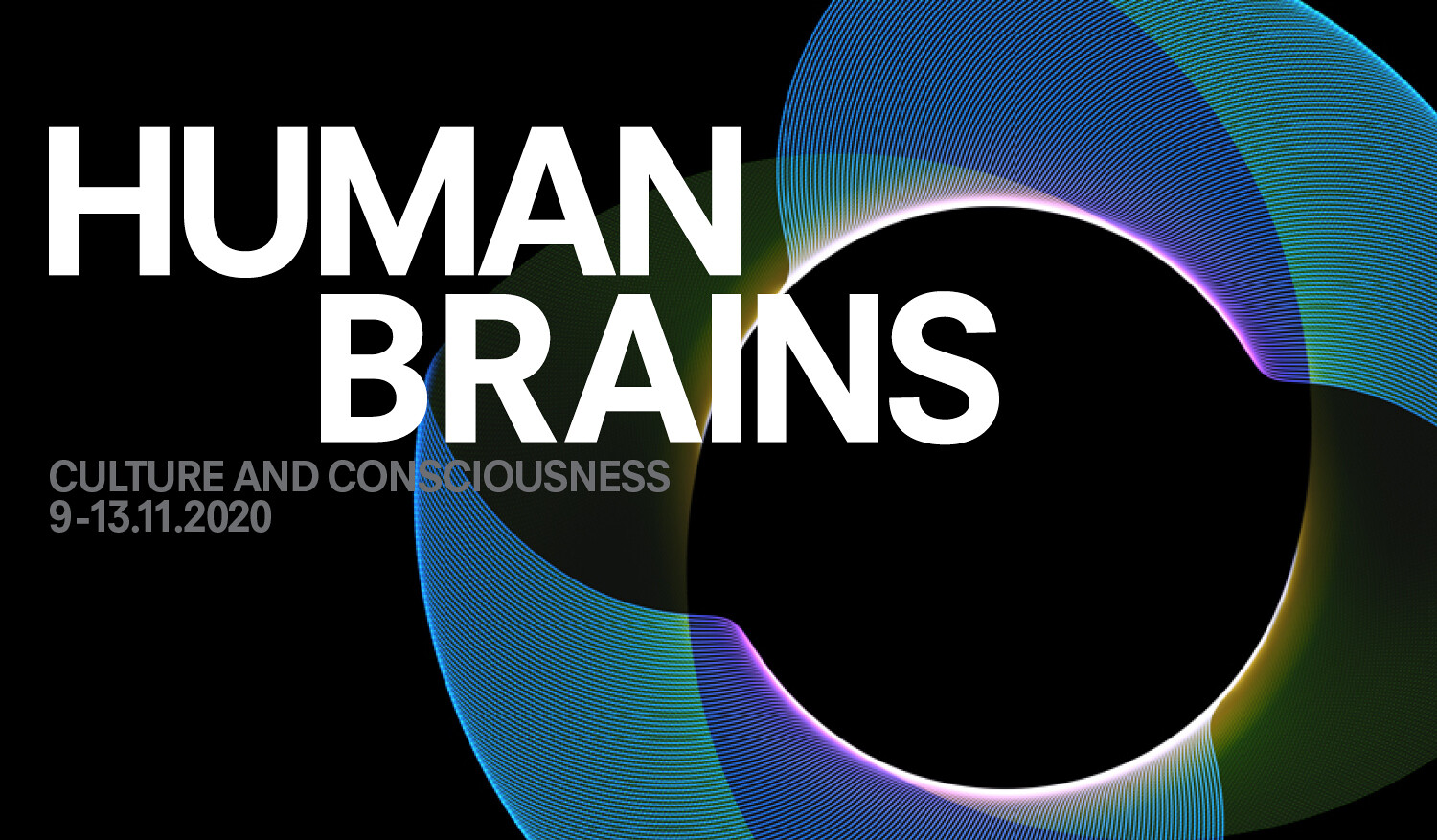Culture and Consciousness
November 9–13, 2020, 7pm
In 2018 Fondazione Prada undertook a multidisciplinary project for the study of scientific themes in depth. These reflections engendered “Human Brains,” a program of exhibitions, debates and publishing activities that will take place from November 2020 to November 2022. The project is the result of a complex research conducted in collaboration with a scientific board chaired by Giancarlo Comi and composed of researchers, physicians, psychologists, linguists, philosophers, popularizers and curators, such as Jubin Abutalebi, Massimo Cacciari, Viviana Kasam, Udo Kittelmann, Andrea Moro, and Daniela Perani.
As stated by Miuccia Prada, President of Fondazione Prada, “I have been thinking about this project for years, and finally we are ready to commit to this intent, thanks the support of a group of philosophers, scientists and researchers that form the scientific board of ‘Human Brains’. During the 25 year-long activity of Fondazione Prada, I have always wished to work on relevant cultural ideas. This specific project devoted to neuroscience is maybe our most important so far: for a visual art institution such as the Fondazione Prada, dealing with science is a true challenge, as it will have to give voice and shape to the ideas of the researchers. This dialogue that starts now to embody the project ‘Human Brains’ underlines the importance of cooperation, in order to give value and disseminate meaningful studies and practices for our present.”
An open project in constant evolution, “Human Brains” aims to experiment new collaboration and dialogue methods among scientists and scholars thus testing innovative communication formats addressed to a heterogeneous and international public.
The first part of “Human Brains” will be featured from November 9 to 13, 2020 (7-9pm CET) during the online conference “Culture and Consciousness” on an interactive platform linked to Fondazione Prada’s website: humanbrains.fondazioneprada.org. The event will be structured in five daily discussions focused on the study of consciousness in neurosciences. Each panel will include a debate between two scholars from different disciplines coordinated by one or more moderators.
Speakers include neurobiologist Jean-Pierre Changeux, neuroscientist Antonio Damasio, cognitive psychologist Stanislas Dehaene, philosopher Michele Di Francesco, neurobiologist Eve Marder, neurolinguist Andrea Moro, neuroscientist Mavi Sanchez-Vives, neuroscientist Idan Segev, anthropologist Ian Tattersal, and psychiatrist and neuroscientist Giulio Tononi.
The “Human Brains” initiative is centered on the brain, a unique organ for the complexity of its functions, which are fundamental to characterize human beings. The scope of the investigation will survey different fields: from neurobiology to philosophy, from psychology to neurochemistry, from linguistics to artificial intelligence and robots. The brain will be analyzed from an anatomical-functional point of view, while also focusing on the brain aging processes and on neurodegenerative diseases.
As stated by Giancarlo Comi, President of scientific board of “Human Brains,” “the path of understanding the mechanisms that allow our brain to produce thought and feel emotions, to create admirable works, has roots far back in time, but has had an incredible acceleration in the last fifty years thanks to science. ‘Human Brains’ wants to start from these roots and project into the future using the scientific method, with an approach at the same time rigorous but open, aware that not all questions can be answered.”
The second chapter of “Human Brains,” scheduled for 2021 at Fondazione Prada’s venue in Milan, consists of an international conference accompanied by an exhibition project. It aims at comparing thirteen of the most prestigious neuroscience international institutes on progress of research in terms of normal and pathological aging of our brain. In 2022 Fondazione Prada’s Venice venue will host an immersive exhibition, curated by Udo Kittelmann in dialogue with the scientific board, dedicated to brain studies that will mark the third phase of “Human Brains.”

